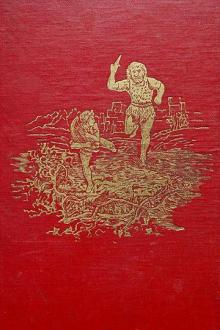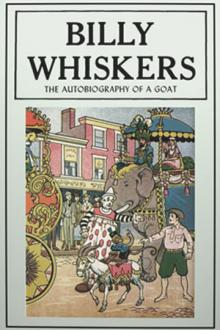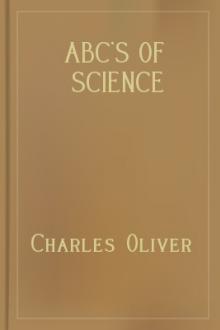The Red Fairy Book - Andrew Lang (best novels for beginners TXT) 📗

- Author: Andrew Lang
- Performer: -
Book online «The Red Fairy Book - Andrew Lang (best novels for beginners TXT) 📗». Author Andrew Lang
village, near the windmill, you know.’
`Ah! yes! I know now,’ said the Wolf. `Well, that’s just where
I’m going; I shall get there before you, no doubt, with your little
bits of legs, and I’ll tell her you’re coming to see her; then she’ll
wait for you.’
Thereupon the Wolf cuts across the wood, and in five minutes
arrives at the Grandmother’s house.
He knocks at the door: toc, toc.
No answer.
He knocks louder.
Nobody.
Then he stands up on end, puts his two fore-paws on the latch
and the door opens.
Not a soul in the house.
The old woman had risen early to sell herbs in the town, and
she had gone off in such haste that she had left her bed unmade,
with her great night-cap on the pillow.
`Good!’ said the Wolf to himself, `I know what I’ll do.’
He shuts the door, pulls on the Grandmother’s night-cap down
to his eyes, then he lies down all his length in the bed and draws
the curtains.
In the meantime the good Blanchette went quietly on her way,
as little girls do, amusing herself here and there by picking Easter
daisies, watching the little birds making their nests, and running
after the butterflies which fluttered in the sunshine.
At last she arrives at the door.
Knock, knock.
`Who is there?’ says the Wolf, softening his rough voice as
best he can.
`It’s me, Granny, your little Goldenhood. I’m bringing you a
big piece of cake for your Sunday treat to-morrow.’
`Press your finger on the latch, then push and the door opens.’
`Why, you’ve got a cold, Granny,’ said she, coming in.
`Ahem! a little, a little …’ replies the Wolf, pretending to
cough. `Shut the door well, my little lamb. Put your basket on
the table, and then take off your frock and come and lie down by
me: you shall rest a little.’
The good child undresses, but observe this! She kept her little
hood upon her head. When she saw what a figure her Granny
cut in bed, the poor little thing was much surprised.
`Oh!’ cries she, `how like you are to friend Wolf, Grandmother!’
`That’s on account of my night-cap, child,’ replies the Wolf.
`Oh! what hairy arms you’ve got, Grandmother!’
`All the better to hug you, my child.’
`Oh! what a big tongue you’ve got, Grandmother!’
`All the better for answering, child.’
`Oh! what a mouthful of great white teeth you have, Grandmother!’
`That’s for crunching little children with! `And the Wolf opened
his jaws wide to swallow Blanchette.
But she put down her head crying:
`Mamma! Mamma!’ and the Wolf only caught her little hood.
Thereupon, oh dear! oh dear! he draws back, crying and
shaking his jaw as if he had swallowed red-hot coals.
It was the little fire-coloured hood that had burnt his tongue
right down his throat.
The little hood, you see, was one of those magic caps that they
used to have in former times, in the stories, for making oneself
invisible or invulnerable.
So there was the Wolf with his throat burnt, jumping off the
bed and trying to find the door, howling and howling as if all the
dogs in the country were at his heels.
Just at this moment the Grandmother arrives, returning from
the town with her long sack empty on her shoulder.
`Ah, brigand!’ she cries, `wait a bit!’ Quickly she opens her
sack wide across the door, and the maddened Wolf springs in head
downwards.
It is he now that is caught, swallowed like a letter in the post.
For the brave old dame shuts her sack, so; and she runs and
empties it in the well, where the vagabond, still howling, tumbles
in and is drowned.
`Ah, scoundrel! you thought you would crunch my little grandchild!
Well, to-morrow we will make her a muff of your skin, and
you yourself shall be crunched, for we will give your carcass to
the dogs.’
Thereupon the Grandmother hastened to dress poor Blanchette,
who was still trembling with fear in the bed.
`Well,’ she said to her, `without my little hood where would
you be now, darling?’ And, to restore heart and legs to the child,
she made her eat a good piece of her cake, and drink a good draught
of wine, after which she took her by the hand and led her back to
the house.
And then, who was it who scolded her when she knew all that
had happened?
It was the mother.
But Blanchette promised over and over again that she would
never more stop to listen to a Wolf, so that at last the mother
forgave her.
And Blanchette, the Little Goldenhood, kept her word. And in
fine weather she may still be seen in the fields with her pretty
little hood, the colour of the sun.
But to see her you must rise early.[17]
[17] Ch. Marelles
THE GOLDEN BRANCHONCE upon a time there was a King who was so morose and
disagreeable that he was feared by all his subjects, and with
good reason, as for the most trifling offences he would have their
heads cut off. This King Grumpy, as he was called, had one
son, who was as different from his father as he could possibly be.
No prince equalled him in cleverness and kindness of heart, but
unfortunately he was most terribly ugly. He had crooked legs and
squinting eyes, a large mouth all on one side, and a hunchback.
Never was there a beautiful soul in such a frightful little body, but
in spite of his appearance everybody loved him. The Queen, his
mother, called him Curlicue, because it was a name she rather
liked, and it seemed to suit him.
King Grumpy, who cared a great deal more for his own grandeur
than for his son’s happiness, wished to betroth the Prince to the
daughter of a neighbouring King, whose great estates joined his
own, for he thought that this alliance would make him more powerful
than ever, and as for the Princess she would do very well for
Prince Curlicue, for she was as ugly as himself. Indeed, though she
was the most amiable creature in the world, there was no concealing
the fact that she was frightful, and so lame that she always went
about with a crutch, and people called her Princess Cabbage-Stalk.
The King, having asked for and received a portrait of this
Princess, had it placed in his great hall under a canopy, and sent
for Prince Curlicue, to whom he said that as this was the portrait
of his future bride, he hoped the Prince found it charming.
The Prince after one glance at it turned away with a disdainful
air, which greatly offended his father.
`Am I to understand that you are not pleased?’ he said very
sharply.
`No, sire,’ replied the Prince. `How could I be pleased to
marry an ugly, lame Princess?’
`Certainly it is becoming in YOU to object to that,’ said King
Grumpy, `since you are ugly enough to frighten anyone yourself.’
`That is the very reason,’ said the Prince, `that I wish to
marry someone who is not ugly. I am quite tired enough of
seeing myself.’
`I tell you that you shall marry her,’ cried King Grumpy
angrily.
And the Prince, seeing that it was of no use to remonstrate,
bowed and retired.
As King Grumpy was not used to being contradicted in anything,
he was very much displeased with his son, and ordered that he
should be imprisoned in the tower that was kept on purpose for
rebellious Princes, but had not been used for about two hundred
years, because there had not been any. The Prince thought all the
rooms looked strangely old-fashioned, with their antique furniture,
but as there was a good library he was pleased, for he was very fond
of reading, and he soon got permission to have as many books as
he liked. But when he looked at them he found that they were
written in a forgotten language, and he could not understand a single
word, though he amused himself with trying.
King Grumpy was so convinced that Prince Curlicue would soon
get tired of being in prison, and so consent to marry the Princess
Cabbage-Stalk, that he sent ambassadors to her father proposing
that she should come and be married to his son, who would make
her perfectly happy.
The King was delighted to receive so good an offer for his
unlucky daughter, though, to tell the truth, he found it impossible to
admire the Prince’s portrait which had been sent to him. However,
he had it placed in as favourable a light as possible, and sent
for the Princess, but the moment she caught sight of it she looked
the other way and began to cry. The King, who was very much
annoyed to see how greatly she disliked it, took a mirror, and holding
it up before the unhappy Princess, said:
`I see you do not think the Prince handsome, but look at yourself,
and see if you have any right to complain about that.’
`Sire,’ she answered, `I do not wish to complain, only I beg of you
do not make me marry at all. I had rather be the unhappy Princess
Cabbage-Stalk all my life than inflict the sight of my ugliness on
anyone else.’
But the King would not listen to her, and sent her away with
the ambassadors.
In the meantime the Prince was kept safely locked up in his
tower, and, that he might be as dull as possible, King Grumpy
ordered that no one should speak to him, and that they should give
him next to nothing to eat. But all the Princess guards were so
fond of him that they did everything they dared, in spite of the
King, to make the time pass pleasantly.
One day, as the Prince was walking up and down the great
gallery, thinking how miserable it was to be so ugly, and to be
forced to marry an equally frightful Princess, he looked up suddenly
and noticed that the painted windows were particularly bright and
beautiful, and for the sake of doing something that would change
his sad thoughts he began to examine them attentively. He found
that the pictures seemed to be scenes from the life of a man who
appeared in every window, and the Prince, fancying that he saw in
this man some resemblance to himself, began to be deeply interested.
In the first window there was a picture of him in one of the turrets
of the tower, farther on he was seeking something in a chink in the
wall, in the next picture he was opening an old cabinet with a
golden key, and so it went on through numbers of scenes, and
presently the Prince noticed that another figure occupied the most
important place in each scene, and this time it was a tall handsome
young man: poor Prince Curlicue found it a pleasure to look at him,
he was so straight and strong. By this time it had grown dark,
and the Prince had to go back to his own room, and to amuse himself
he took up a quaint old book and began to look at the pictures.
But his surprise was great to find that they represented the same
scenes as the windows of the gallery, and what was more, that they
seemed to be alive. In looking at pictures





Comments (0)